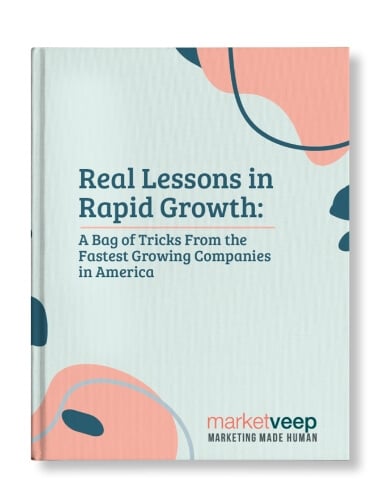Why Creating a Positive Company Culture is Important

 When you purchase through links on our site, we may earn an affiliate commission.
When you purchase through links on our site, we may earn an affiliate commission.
By Jennelle McGrath
Successful businesses don't just look good on paper. Productivity has been linked directly to employee happiness. Building a positive company culture isn't something you can do quickly or easily, but the results are worth the initiative.



Experts consider these companies leaders because of their success, but also because they understand that creating a positive company culture is important to the health of their entire business model.
Perks like free food and yoga classes are exceptional and they grab people’s attention. However, they are just the fringe benefits of a positive company culture.
The health of a company’s culture is difficult to quantify. Anonymous surveys can give you a glimpse of people’s job satisfaction, but most employees will know quickly if their environment is conducive to productivity, collaboration, and overall happiness in the workplace.
Additionally, new online tools can offer outsiders more perspectives on the inter-workings of the world’s biggest companies.
Health, Retention, and the Bottom Line
Employee job satisfaction is but one of the many reasons why creating a positive company culture is important in today’s business environment. A positive company culture can also contribute to company growth and increase the bottom line.
Initiatives like mental and physical health programs can lead to fewer sick days, higher productivity, and a stronger work ethic in general. Over time, positive cultural initiates can reduce overhead costs and assist in employee collaboration.
A positive company culture can also lead to higher employee retention, which is pivotal for small to mid-sized businesses.
Smaller companies who don’t have in-house HR departments must spend a large percentage of work hours actively searching for promising candidates. According to a 2016 Human Capital Benchmarking report by the Society for Human Resource Management, the average cost-per-hire for a new employee is $4,129, and the time it takes to fill a position averages at 42 days.
Other studies indicate that the average cost of losing and replacing employees is higher, and can be up to 2 times the employee’s annual salary.
Creating a Positive Company Culture Begins with People
Creating a positive company culture is important because, no matter what the industry, a company is made up of people.
Every person has basic needs in the workplace, such as space, relative comfort, and for breaks. Most companies meet these basic needs, but there are other needs people look to fulfill when they go to work each day: needs like community, enrichment, and personal growth.
Entrepreneur Magazine defines company culture as, “a blend of values, beliefs, taboos, symbols, rituals, and myths all companies develop over time.” Every company develops these elements of culture simply by operating each week, day after day, whether they intend to or not.
This means that company culture is organic, at least in part, as there is no way to force people to be happy and productive or to truly believe in any set of values.
Managers and executives do have a direct influence on their company’s culture, however. They generally set the tone for the work environment and expectations for each employee.
To that end, managers and executives have a lot to gain by being transparent and listening to their employees.
According to a study by the Department of Economics at the University of Warwick, happy workers are 12% more productive than the average worker, while unhappy workers are 10% less productive than average. Happy employees also produce better quality work.
To create a positive company culture, companies in various industries are focusing on the following:
- Allowing for more transparency
- Fostering an environment of kindness and compassion
- Resolving issues of blame and finger pointing
- Forgiving mistakes
- Emphasizing meaningfulness of tasks
- Encouraging gratitude and respect
- Granting employees more independence by relying on their good judgment
- Investing time and energy into employee growth
- Having more fun
These strategies are so effective for creating a positive company culture because they focus on the one thing that binds every group of people together: their common humanity.
Human error occurs. Not every employee will be at 100% each day. Companies can allow for more collaboration and provide employees a means of asking for help by acknowledging this.
Other than greater levels of productivity and overall happiness, there are more good reasons for fostering a positive company. For one, future companies may find it harder to attract new talent without one.
The Glassdoor Phenomenon
Founded in 2007, glassdoor.com began as a tool for workers looking to make career decisions. The website allows them to access anonymous reviews of workplaces by current and former employees.
Glassdoor still serves this function, but it has also become a key indicator of the cultural health of organizations. Now, other social sites like LinkedIn and Indeed have also enabled employees to share reviews and leave comments about what it’s like to work at specific companies.
According to one study from 2014, almost half of all job seekers in the U.S. now look at reviews on Glassdoor.
The site is now a host to over 600,000 reviewable companies, 10 million unique reviews, and 33 million users, all attempting to answer the same question about the companies they apply to:
What is it like to work here?
In the past, it was difficult to learn about a company's culture from the outside. Applicants had to glean that information through company print collateral, meetings with managers, tours, and documentation.
Once they were hired, if they found they were unhappy with the company’s culture, they had to risk re-entering the job market.
Unsurprisingly, some companies are taking a more active role on Glassdoor and elsewhere online. They respond to negative comments and encourage unhappy employees to discuss their grievances with management.
Doing so is a great way to engage with employees who may not have spoken up otherwise. It also shows potential applicants that the company takes complaints seriously. This demonstrates that they're actively creating a positive company culture.
Every company on Glassdoor has some negative reviews. It’s their choice to either ignore or engage with them.
The Millennial Influence and the Future of Company Culture
Part of the reason for these new approaches is the continuing entrance of Millennials into the workforce. Much attention has been given to their requests for amenities like “nap pods,” their desire to listen to music while they work, and their penchant for wearing semi-casual clothing in the office.
The fact that Millennials are entering the workforce is often cited as the reason for these types of workplace changes. But again, free food and casual dress are but fringe elements of a positive company culture.
Millennials may have different expectations from the workplace than their predecessors, but the general concept of company culture predates them.
Scholars in the early 1990’s advanced the idea that organizations have specific cultures. Decades before them, companies all over the world were generating their own unique cultures through practice.
Being digital natives, Millennials are used to the type of personal transparency offered by social media. They are also more likely to engage in company cultures that encourage giving and offer them more independence.
According to Forbes, 64% of Millennials say it’s a priority for them to make the world a better place and 89% want to work for a boss that acts more like a mentor or coach than a supervisor.
Creating a positive company culture is important for the future. More job seekers will be focused on company culture as part of their decision-making process.
A company whose culture seems stagnant may get passed up for a company whose culture seems more vibrant and encouraging.
Creating a positive company culture will also be an important factor for productivity and competitiveness. Companies who focus on their culture will likely grow faster than those that don’t.
Get The Latest From
Market Veep
RELATED ARTICLES

Cultivating a Great Team In Your Business
As the business environment keeps changing, company culture has never been more important. Jennelle...

Market Veep Ranks 4009 on Inc. 5000 List
This achievement is a reflection of our unwavering commitment to excellence and our relentless...

Extensive Outreach We Can All Support
This month’s wonderful organizations are all very deserving of a donation. The National Alliance to...

Get Growing!
Download our eBook and get advice from 8 CEOs of Inc. 5000 companies in their own words.

GREAT MARKETING PARTNER
Market Veep is a great firm that handles all of our marketing efforts. This is the second time that I have used the firm. I highly recommend Market Veep!

Cres F.

EXCEPTIONAL EXPERIENCE
Market Veep's Onboarding Experts in Inbound Marketing are an absolute game-changer! From the get-go, their approach was top-notch. Market Veep's team has undoubtedly set the bar high for excellence in inbound marketing. Five stars aren't enough to commend their outstanding service!

Matthew W.

BEST PARTNER EVER!
As a growing business, setting up our first-ever HubSpot account was a crucial step towards enhancing our marketing and customer management strategies. From the moment we contacted MarketVeep, their team demonstrated professionalism, expertise, and a genuine desire to help us succeed. Overall, our experience with MarketVeep was exceptional, and we couldn't be happier with the results. Thanks to their guidance, we are now utilizing HubSpot to its fullest potential, streamlining our marketing efforts, and nurturing leads more effectively.

Jean M.

SET UP FOR SUCCESS!
We had an exceptional experience with Market Veep! Their team is professional, super organized, and friendly, and I truly enjoyed working with them. They executed on time and made the process super easy with their organization and documentation. In addition, they provided additional guidance and answered my many questions as I was new to HubSpot, and provided documentation resources for future use. We're now set up to leverage all that HubSpot marketing has to offer, and we couldn't have done it without Market Veep's expertise.

Bailey G.

5 STARS FOR MARKET VEEP!
We had a fantastic experience with Market Veep! Their expert team seamlessly guided us through implementing HubSpot and provided comprehensive training across Sales, Service, and Marketing Hubs. Their knowledge and support significantly enhanced our workflow and overall efficiency. Highly recommend Market Veep for top-notch HubSpot solutions!

Anneke C.









